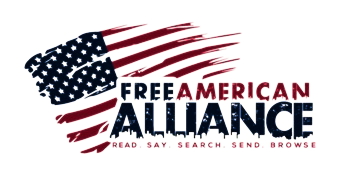Blaze News investigates: California Democrats propose new law that will push rents higher during painful housing crisis
Democrats in the California legislature are pushing a law that critics say will hurt renters with...
Read More
Democrats in the California legislature are pushing a law that critics say will hurt renters with...
Read MoreDemocrats in the California legislature are pushing a law that critics say will hurt renters with...
Read MoreSecretary of Health and Human Services Xavier Becerra refused this week to support any...
Read MoreSecretary of Health and Human Services Xavier Becerra refused this week to support any...
Read MoreCritics of the legislation argue that animal testing has helped advance research that supports...
Read MoreCritics of the legislation argue that animal testing has helped advance research that supports...
Read MoreThere is good reason to believe that fish, amphibians, molluscs and insects are sentient,...
Read MoreWalmart will be the centerpiece of a new development in one of ]= Dallas-Fort Worth’s...
Read MoreThis article has been reviewed according to Science X’s editorial process and policies ....
Read MoreThe Los Angeles City Council paved the way Friday to move forward with a pay-to-foster program for...
Read MoreShares of Paramount Global rose more than 10% on Friday, on news Sony Pictures Entertainment and...
Read MoreNew York State auditors monitor everything from people’s travel schedules to the locations of...
Read MoreDavid Dastmalchian was raised in a religious household where “everything was ‘the Devil’s work’”...
Read MoreA third House Republican member has announced he will co-sponsor a motion to vacate introduced by...
Read MoreProtests at Columbia University in New York City got heated Thursday night as protesters demanded charges be dropped against pro-Palestinian activists who were shutting down the college’s buildings to protest Israel’s war in...
Read MoreThis just happened live on CNN:[Warning: Graphic videos incoming]Here’s a closer shot.Bro...
Read MorePublishedApril 19, 2024 2:17 PM EDT|UpdatedApril 19, 2024 2:17 PM EDTFacebookTwitterEmailCopy...
Read MoreHouse Speaker Mike Johnson lost more than 25% of his Republican conference Friday on a procedural...
Read MoreA pair of teens entered a Sunoco convenience store in Humble, Texas, on Jan. 19. After...
Read More

Changes are coming to CauseACTION as we roll out a Suite of Social Media tools dedicated to common sense, Conservative and Independent Americans, and the uncensored content from over 150 Conservative Publishers, Causes, Advocacies, and Nonprofits with live streaming of Top 50 Conservative Radio Talk Shows and Podcasts... all in one place, without ads, or any distractions.
CauseACTION and Constitutionally-grounded web experts from Silicon Valley to New England have come together to deliver to you the "Free American Alliance"... the largest pool of Conservative news, opinion, and both video and audio content (FreeREAD, FreeTALK, FreeWATCH), the FreeSAY social exchange platform, and the only untracked, uncensored search engine with its own independently-owned, Web Index, FreeSEARCH.
If you would like to learn more about FreeSEARCH and a lot more of what really goes on behind the scenes in Silicon Valley, then listen to Rich Lepoutre and Steve Marshall's post DuckDuckGo Debacle here
The Freedom to Search With Zero tracking, Censorship or Steering of Results
Listen To Over 100 Of Your Favorite Conservative Talk Shows And Podcasts.
Watch Your Favorite Conseervative Video Channels And That Incudes The Hundreds Of Conservative YouTube Videos That Have Been Banned By Google.
